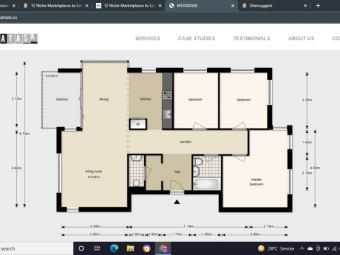Forward Facingtm Trauma Therapy Healing The Moral Wound
Tags: Healthcare
Healing the Moral Wound
Last updated 2022-01-10 | 4.9
- The focus is to increase understanding of individuals through the trauma/adversity history lens.- Motivation and meaning of behaviors will be explored and defined as an attempt to decrease feelings of distress.
- Trauma-informed care is an established practice that can dramatically improve the outcomes for individuals
- children
- and families.
What you'll learn
* Requirements
* This is a discussion of the elements of trauma informed care and supporting materials on the nature of how trauma/adversity can impact life and health throughout the lifespan.Description
Forward-Facing®
Trauma Therapy: Healing the Moral Wound
CONSULTING SERVICES FOR HEALTH & WELLNESS
What you'll learn
Forward-Facing® Trauma Therapy is a 21st Century psychotherapeutic approach to healing the negative effects of trauma and painful past experiences. It was designed as an alternative to current models of treatment that focus upon memory retrieval and processing as the primary method for resolving traumatic stress, FFTT, instead, has utilized a present day in vivo (“in life”) approach that provides desensitization and integration of trauma memories while confronting situations here in the present. This method and course will teach licensed mental health and healthcare professionals to implement FFTT into their practice and a potent ancillary to traditional psychotherapy. However, over the past several years, FFTT has emerged as a method that does not require psychotherapeutic skills or licensure to effectively implement its healing capacity. You will learn how to engage anyone who is struggling with any stress-related issue in a p[process that teaches them the skills to resolve distress and begin a Couse of effective living. This is achieved by teaching clients to self-regulate their own autonomic nervous system and interrupting the involuntary physical and cognitive engagement of the threat response where there is little or no danger. As survivors begin to master these skills of self-regulation—through the aide of an effective consultant or coach (not necessarily a licensed health professional)—they significantly lessen their distress; restore comfort in their bodies; improve cognitive and motor functioning; and optimize their lives. The very exciting thing about FFTT, which the student of this course will learn, is how when people live in chronically dysregulated autonomic nervous systems then they frequently breach their intention and integrity (i.e., “moral wounding). By helping clients develop the capacity for self-regulation and assisting them with clarifying and articulating their intentions (e.g, mission and code-of-honor), they are able to utilize the Forward-Facing™ skills to increasingly and effectively practice principle-based intentional living. The skills required to live in this way are the same skills that resolve stress-related problems.
Students completing this course will be equipped to immediately implement Forward-Facing™ skills and principles in their work with clients and patients in either a psychotherapeutic or coaching/consulting context.
Requirements
While FFTT was originally developed and utilized a psychotherapeutic approach implemented by qualified psychotherapists, these principles and practices are also deliverable in a non-clinical coaching or consultation approach. Anyone interested in learning how to lessen stress, improve resilience, enhance performance (cognitive and motor) and optimize personal/professional life is welcome to engage this course. There are no prerequisites.
Description
In Forward-Facing Trauma Therapy (FFTT) presented by Dr. Eric Gentry, PhD, LMHC, the participant will take a journey from hardship to healing. FFTT begins by exploring some of the common myths and misconceptions about the causes and meaning of stress and will examine the destruction it can wreak on our bodies, our minds, our spirits, and our relationships. FFTT is designed to discover the triggers that can lead us to act reflexively in ways that we deeply regret afterwards. FFTT will encourage participants to consider what it means to live an intentional life and how cultivating the skill of interoception, or “bodifulness,” can help us achieve this essential goal. Along the way, Dr. Gentry will share some inspiring stories about women and men he has known who successfully put these lessons into practice; vanquishing stress, regaining their resilience, and finding new joy, optimization, and fulfillment in their lives.
Objectives:
1. Discover the “active ingredients”/common elements for treating posttraumatic stress advocated as best practice for treatment of PTSD by leading agencies and organizations
2. Employ a staged “active ingredient/”common elements” approach to evidence-based practice for treating survivors of trauma. This is contrasted with current practice of utilizing only EBT model-driven approaches.
3. Conceptualize, articulate and utilize specific evidence-based treatment tasks within each of the (dynamic elements/active ingredients) of treatment that resolve symptoms of posttraumatic stress.
4. Learn and employ the Empowerment & Resilience Treatment Structure (Gentry, Baranowsky & Rhoton, 2017) for delivery of treatment with trauma survivors.
5. Efficiently and effectively facilitate resolution and healing of posttraumatic conditions.
6. Learn specific psychoeducation and cognitive restructuring techniques for maximizing engagement and participation in early treatment.
Credentialing: Participants who successfully complete this course are eligible to pursue credentialing as a Registered Forward-Facing® Practitioner.
Who this course is for:
- Mental health, teachers, probation, courts, child-protective agencies, foster parents, faith leaders; HR professionals, leadership.
Course content
1 sections • 20 lectures








 This course includes:
This course includes:
![Flutter & Dart - The Complete Guide [2022 Edition]](https://img-c.udemycdn.com/course/100x100/1708340_7108_5.jpg)















